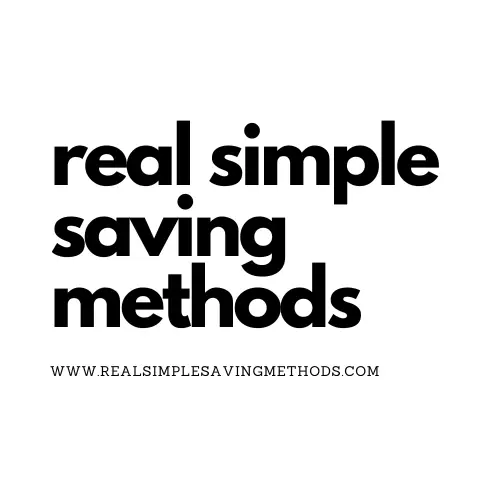Self-employment offers numerous advantages, including independence, flexibility, and potentially higher earning potential. However, it also comes with added responsibilities, especially when it comes to managing your finances. One of the key aspects of financial management for self-employed individuals is tracking income and expenses effectively. In this in-depth article, we will explore the importance of tracking income and expenses, discuss various methods and tools to do so, and offer practical tips to help self-employed individuals maintain control over their financial matters.
Why Tracking Income and Expenses Is Crucial
Managing your finances as a self-employed individual is not just about earning money; it’s also about understanding where that money comes from and where it goes. Here are some compelling reasons why tracking income and expenses is crucial for self-employed individuals:
- Tax Compliance: Accurate income and expense records are essential for meeting your tax obligations. This includes calculating and paying self-employment taxes, deducting business expenses, and avoiding costly tax errors.
- Financial Planning: Tracking your income and expenses provides you with the data needed to create a budget, set financial goals, and make informed decisions about your business and personal finances.
- Business Growth: By analyzing your financial data, you can identify profitable areas of your business, optimize spending, and make strategic decisions that can lead to growth and expansion.
- Legal and Financial Security: Accurate records can provide a strong defense in case of audits or legal disputes. They also help protect you from fraud or theft by providing a clear financial trail.
Now, let’s delve into the methods and tools to effectively track income and expenses when you’re self-employed.
Methods for Tracking Income and Expenses
- Separate Business and Personal Finances: The first step in effective financial tracking is to keep your personal and business finances separate. Open a separate business bank account and use it exclusively for business transactions. This clear separation simplifies tracking and ensures that personal expenses don’t get mixed in.
- Record Every Transaction: Develop a habit of recording all income and expenses as they occur. This can be done manually with spreadsheets or by using accounting software. Don’t rely on memory; even small cash transactions should be documented.
- Digital Tools and Accounting Software: Invest in reliable accounting software like QuickBooks, FreshBooks, or Xero. These platforms offer features such as expense categorization, invoicing, and financial reporting, making it easier to manage your finances. Many of them also integrate with banks and payment processors, simplifying data entry.
- Create a Chart of Accounts: Establish a chart of accounts that categorizes your income and expense types. Common categories include advertising, rent, utilities, office supplies, and various income sources. Consistent categorization helps you analyze spending patterns and tax deductions accurately.
- Invoice and Payment Records: Maintain a clear record of all invoices sent to clients or customers. Include invoice numbers, payment due dates, and payment status. When payments are received, reconcile them with your income records.
- Track Mileage: If your self-employment involves traveling for business purposes, keep track of your mileage. The IRS provides standard mileage rates that can be used to calculate deductions related to business-related travel.
- Regular Reconciliation: Reconcile your bank and credit card statements regularly to ensure that all transactions are accounted for accurately. Any discrepancies or unauthorized charges should be addressed promptly.
- Save Receipts and Documentation: Keep copies of receipts, invoices, contracts, and other financial documents. Digital scans or photographs can be just as valid as paper copies for tax purposes. Organize these documents logically for easy retrieval.
- Set Aside for Taxes: As a self-employed individual, you are responsible for paying both income tax and self-employment tax. Set aside a portion of your income for taxes to avoid a financial crunch when tax season arrives.
- Consult a Professional: Consider consulting a tax professional or accountant to ensure your records are accurate and that you are maximizing your tax deductions and credits.
Practical Tips for Effective Income and Expense Tracking
- Establish a Routine: Dedicate specific times each week or month to update your financial records. Consistency is key to maintaining accurate records.
- Automate When Possible: Automate recurring transactions, such as subscription payments or client invoices, to reduce manual data entry and minimize errors.
- Back Up Your Data: Regularly back up your financial data to protect it from loss or corruption. Consider using cloud-based accounting software for added security.
- Monitor Cash Flow: Keep a close eye on your cash flow, as it’s a vital indicator of your business’s financial health. Predict and address potential cash flow issues in advance.
- Educate Yourself: Invest time in learning about basic accounting principles and tax regulations that apply to your self-employment. This knowledge can empower you to make informed financial decisions.
Conclusion
Tracking income and expenses when you’re self-employed is not just a necessity; it’s a fundamental skill for achieving financial success and security. By maintaining accurate records, utilizing digital tools, and following best practices, you can stay on top of your finances, ensure tax compliance, and make informed decisions that support the growth and sustainability of your self-employed venture. Remember, financial management is an ongoing process, so commit to staying organized and proactive in your approach to income and expense tracking.

MORE POSTS: Do banks offer free financial advice?

